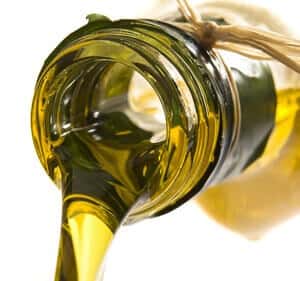
Q. I stopped using estrogen last summer, but now I am suffering with vaginal dryness. This is causing me a lot of discomfort and is making relations with my husband difficult.
I remember reading in your column that one woman said she is using olive oil for this problem. Does she ingest it, or does she use it directly in her vagina?
A. She applied the olive oil directly as a personal lubricant. When she had a pelvic exam some months later her doctor thought she was taking hormones because of the difference olive oil made.
We can’t explain why olive oil would make such a difference to vaginal tissues, but others have shared a similar story:
Q. I read about olive oil improving a woman’s sex life. Vaginal dryness is the only symptom I have ever suffered due to menopause. My gynecologist has recommended almost everything, including the topical application of Vitamin E oil, but it left a distinctive residue after intercourse, which I found to be very undesirable.
I love olive oil and use it in my daily cooking. It has a distinctive smell, though, and I don’t care to smell like an antipasto salad for any length of time.
The vaginal dryness is playing havoc with our love life, because intercourse is painful. I try not to let my husband know that. I love sex, but it’s difficult to enjoy anything that hurts. I am willing to try olive oil, but just how do you get rid of the residue?
A. We’ve heard from several readers that olive oil can be a good natural lubricant. One woman reported that just five drops for her and five for her husband worked. Such a small quantity should not leave much “antipasto” residue.
Another couple found that almond oil was helpful. It has relatively little aroma.
Then there is this:
Q. I am a 63-year-old woman who had estrogen-positive breast cancer 10 years ago. I had bilateral mastectomies, no chemo or radiation.
Now I am extremely estrogen deprived and cannot have sex because of the pain from vaginal dryness. My doctor will not prescribe estrogen to help with this problem because it might increase my risk of cancer recurrence. Is there some other way to treat these atrophic changes?
A. Applying a lubricant such as olive oil or coconut oil daily may be helpful. For intercourse, you might want to consider a water-based lubricant such as Sylk. It contains kiwi-fruit vine extract and is available on the Web at www.sylkusa.com or by calling (866) 831-2920.
There are those who also sing the praises of coconut oil:

